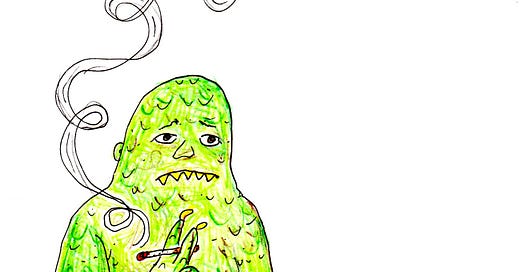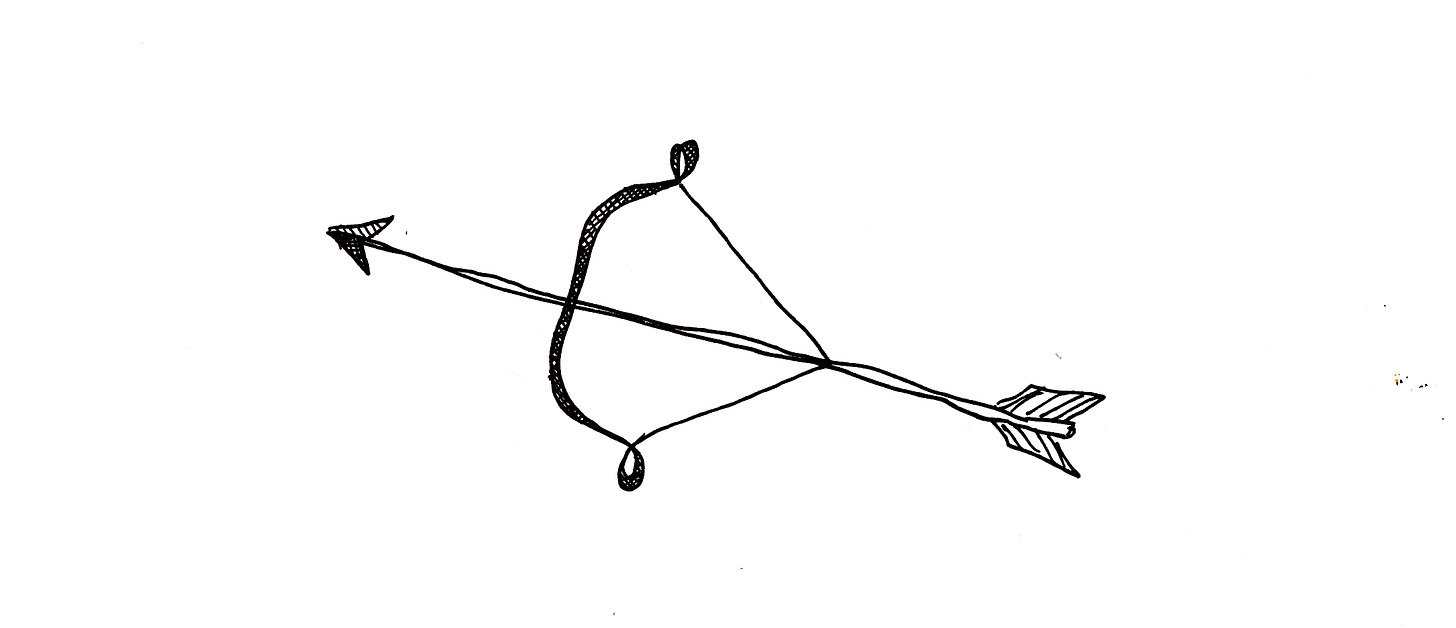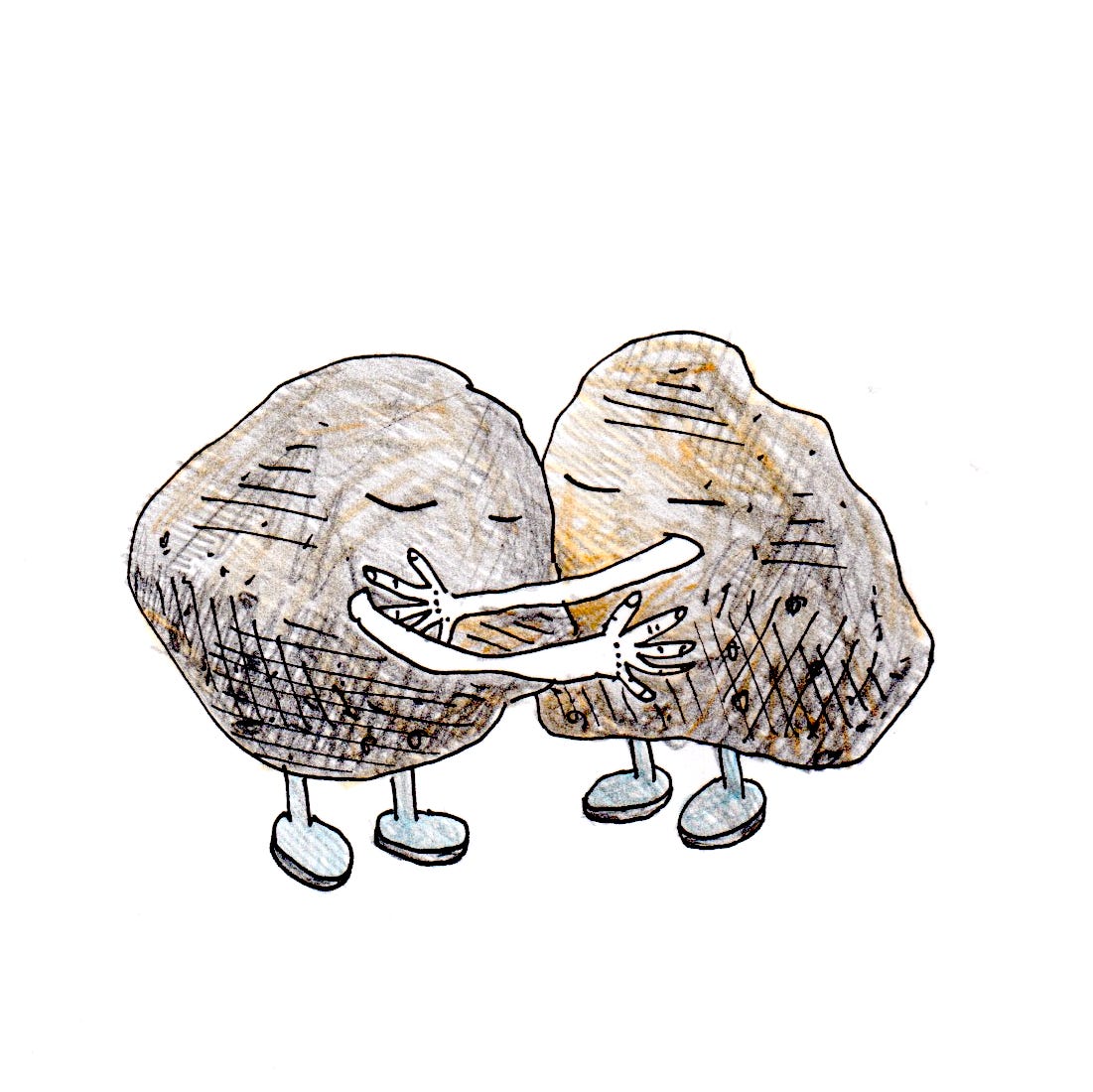The Small Bow is funded entirely out of the pockets of paying subscribers. We don’t take advertisements or sponsorships, we use your money to help pay for all our freelancers and Edith’s illustrations. Our newsletter is for people who have substance misuse issues or struggle with mental health, but our stories have a far greater reach than that. TSB is for the unlucky and the unlovable. The ugly and the lost. It’s whatever you need it to be.
If our newsletter has made you smile or laugh or cry or feel less wicked and alone, please consider financially supporting us. Subscribers get access to the entire archive, the Sunday essay, the entire recommendations roundup, and the complete rundown of my weekly recovery program. You’re also gifted the sense of accomplishment and satisfaction of helping put something good into the world. Seriously—thank you for letting us be of service.
Almost eight years of sobriety has not made my 8th Step any easier (To the uninitiated: The 8th Step in AA requires you “make a list of all people we had harmed and willing to make amends to them all.”) Even though the 9th Step is probably the one of the Twelve that civilians fixate on the most: the image of the destitute, desperate asshole groveling for forgiveness. I know that’s the one I focused on before I even began the steps—couldn’t wait to zoom right ahead to it to celebrate my redemption. But first, you have to make the list—and more importantly, you have to be willing to suck it up and do whatever possible to make things right.
Last week, I began formulating my list again because I haven't done a thorough 8th Step in a couple of years. The last time I did one with my sponsor, I'd somehow added more names to my amends list than when I initially began doing stepwork. I can't figure out if that means I'm doing the program with the correct amount of rigorousness or if I've been hedging the whole time, afraid of remembering all the people I'd harmed because that would be too painful.
It was a great time to grapple with this, especially since we interviewed Claire Dederer this week. I don't know if I praised her book "Monsters" effusively enough. I'm not great at being effusive without sounding hyperbolic, and then I also realized I didn't do a great job explaining the book. To sum up, Dederer carefully examines and critiques whether she—or anyone–can still be a fan of art created by men who'd done monstrous things—Roman Polanski, Woody Allen, Picasso, et al. "Does genius deserve special dispensation?"
If you're in recovery, you'll probably read it as a recovery book. I did. And I think it's one of the best recovery books I ever read, especially when she examines her own monstrosity, especially after she became sober:
"Recovery, as a way of living, makes you see things from the monster's point of view. You see things from his point of view because you are him. You sit in the rooms and listen and you hear terrible, terrible things, but they are also ordinary things. Because everyone in that room has been through them. [I] t's a new experience of empathy for me—the empathy of saying what is worst about me, what is most monstrous, and having it accepted not because I am special, but because I'm not. [W]hen that happens to you, when you receive that very specific kind of empathy: You learn to give it to others as well. Not as a kind of painstaking reciprocity, or out of fairness, or because you are good, but because hearing that you are ordinary in your badness, and extending that understanding of ordinariness to others—doing that helps you continue to not-drink. And therefore continue to live."
Another bit of perfect timing: I read some of the reviews of Francis Ford Coppola's Megalopolis screening at the Cannes Film Festival. Along with the not-so-great reviews were several red carpet photos of the large cast of mostly A and B-list movie stars in attendance, the most surprising of whom was Shia Lebeouf, who's maintained a purposely low profile since his former partner FKA Twigs filed a lawsuit against him in 2021 claiming he physically and emotionally abused her with frightening regularity throughout most of their two-year relationship. But there he was—tuxedoed, flashy-haired, and graciously receiving public adulation for his acting work. Maybe it meant something to Coppola or some of the actors that he was there. But it seemed gross—monstrous even.
Keep reading with a 7-day free trial
Subscribe to The Small Bow to keep reading this post and get 7 days of free access to the full post archives.






